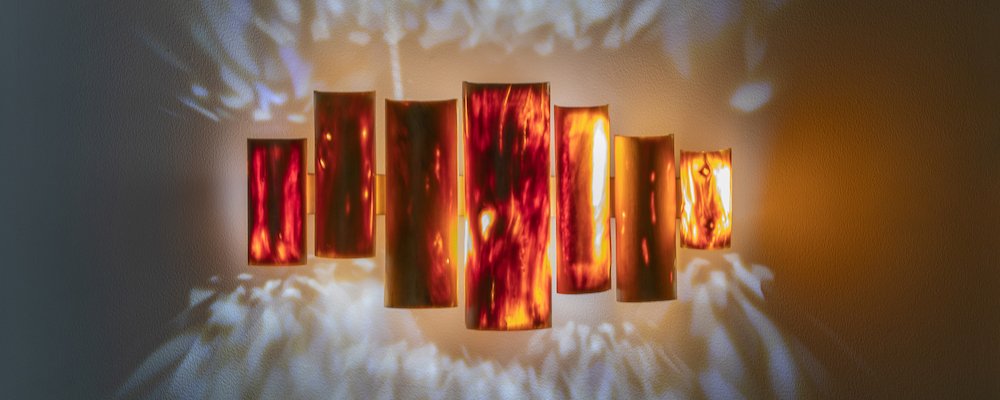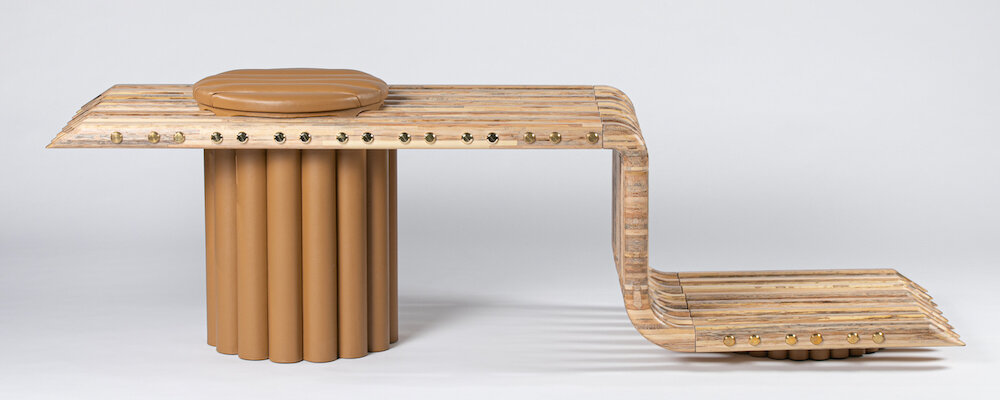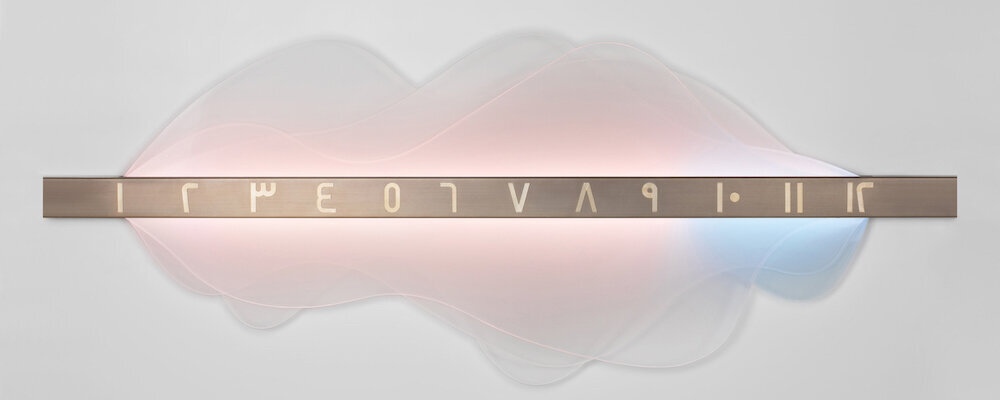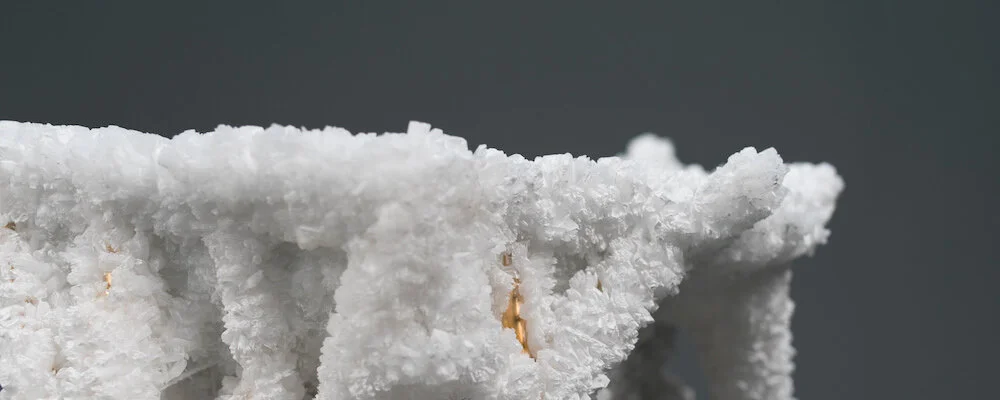Tanween 2021 by Tashkeel
Made In UAE… This is the first and most important condition that Dubai-based Tashkeel as set for its yearly collection since its inception. On the occasion of the seventh edition of Dubai Design Week, discover the 2021 collection.
When I was heading Design Days Dubai and later on Dubai Design Week, I felt privileged to work with Tashkeel in Dubai. At a very early stage, this cultural pivotal institution supported not only the art but the burgeoning design scene too. A vast majority of artists and designers had the chance to experiment and improve their skills thanks to Tashkeel thorough’s programme with workshops, residencies and interaction with professionals from abroad.
Tanween by Tashkeel nurtures the UAE design aesthetic through a range of commercially available, limited edition pieces inspired by, designed and manufactured in the UAE by emerging UAE-based designers whom Tashkeel has supported. These furniture and lighting pieces integrate traditional crafts and contemporary design practice, often using innovative applications of traditional materials and techniques that are integral to UAE identity.
Present at Downtown Design 2021 (stand E21), Tanween represents Tashkeel's commitment to innovating sustainable solutions for contemporary product design informed by the heritage, identity and natural environment of the United Arab Emirates.
7 pieces from 2021 Tanween design programme and 3 pieces already part of the Tanween Collection will be on sale on site.
New Collection
Kapok series chair & footrest by Tasnim Tinawi
Reliance on imported materials for manufacturing can be redressed by reviving the value of native shrubs and ground-cover as sustainable resources, particular in countries facing increasing soil salinity.
Tasnim Tinawi’s Kapok chair and ottoman demonstrates the potential of desert-cotton as a plant-based stuffing for today’s design market.
Desert-cotton is sourced from the buds of the native, salt-tolerant shrub Aerva Javanica, historically valued for its medicinal purposes and counteracting sand migration. An Tanween 2021 outcome.
Tasnim Tinawi is a designer based in the UAE with a degree in Architecture from the American University of Sharjah. She has been previously selected as a curating member of the Youth Assembly 2020 for the Jameel Arts Centre. As a practicing architect, she has also contributed to Bone, Architecture + Other Things and the Sharjah Architecture Triennial. She co-founded UT-R studio as a collaborative practice with Uthra Varghese in 2016.
Taht Al Ghaf lights (2) and necklance by Khawla Al Balooshi
The mass import of construction and design materials together with the loss of intangible heritage means that uses of locally available, natural resources has become overlooked.
Khawla Albalooshi’s Taht Al Ghaf series of wall mounted lights demonstrates the material possibilities of the ghaf, the national tree of the UAE.
During the 2021 Tanween Design Programme by Tashkeel, Khawla developed equipment and a treatment method to transform ghaf wood into a translucent material that can be used in the fashion and furniture industry.
Khawla Albalooshi is an Emirati interior designer. She holds a degree in interior design from the College of Architecture, Art and Design at Ajman University.
Currently, Khawla works as a freelance interior designer for both residential and commercial projects. She was part of the design team for the Ajman Youth Hub (Girls) as an intern, a Federal Youth Authority initiative. She has also designed several cafés and was involved in private residential projects in Ras Al Khaimah.
Sehra cabinet by Eman Shafiq
The world is running out of sand for construction. There is an abundance of desert sand in the Gulf but it is too fine and smooth for cement and concrete. Finding a way to use it could revolutionise the construction industry.
Eman Shafiq’ Sehra cabinet demonstrates the potential of BioSand, a locally sourced biodegradable desert sand-based construction material as an alternative to stone quarrying and concrete production.
BioSand was developed by Eman Shafiq on the 2021 Tanween Design Programme by Tashkeel.
Eman Shafiq is an Architect, Researcher and Product Designer born and raised in the UAE. Since graduating from the American University of Sharjah in 2019, Eman has gained experience as an Architectural Research Assistant at the American University of Sharjah, as part of the Architecture Production Team of the inaugural Sharjah Architecture Triennial, and as a Junior Architect at X-Architects. She is currently continuing to work as an Architect within the region. Alongside her work as an Architect and Researcher, she established her own product design brand, the Eman Shafiq Design Studio. Her work has been exhibited at ‘UAE Designer Exhibition’ (Dubai Design Week & Jameel Arts Centre, 2020), as well as at the Maraya Art Centre in 2018.
SEEDS series ottoman and bag by Nuhayr Zein
The fabrication of synthetic and animal leathers can harm the environment and generate excessive wastage. During Tanween 2021, Nuhayr Zein developed a plant-based leather alternative for use in product and fashion markets.
Demonstrated by the SEEDS series ottoman, Leukeather is a sustainable naturally textured material alternative to exotic leather.
It is made from the pods of the white popinac tree (Leucaena Leucocephala), a species abundant in the UAE as well as many other parts of the world.
Nuhayr Zein is an Egyptian architect and researcher raised in the UAE whose work spans architecture, product design and material research. She earned her Bachelor’s degree in Architecture from the American University of Sharjah and has worked at architecture firms including Cebra Architecture, Broadway Malyan, Dabbagh Architects and Agata Kurzela Studio. She has also worked independently on a range of design products and has been commissioned by the Milan Chamber of Commerce. Previously, she was selected to exhibit at the RIBA Architecture Festival, Dubai Design Week, Venice Design Week and Jameel Arts Centre. Her 2020 furniture collection is currently represented by several galleries including Galerie Philia.
Returning Pieces
Yereed by Lina Ghalib
Around 500,000 tons of palm waste is generated each year in the UAE.
While some is recycled, the rest goes to landfills or is burnt.
Joining the substantial research into palm trees across the world, Lina Ghalib’s PlyPalm (created during Tanween 2020) is a sustainable material cultivated seasonally from shed palm leaf branches into a structurally sound, hardwood material suitable for furniture as demonstrated by her limited edition bench-seat, Yereed.
Katta by Yara Habib
Katta is a screen-divider that holds 400 pieces made of a variety of materials with individually hand-woven wooden panels, inspired by the traditional patterns and crafts of the UAE. Each individual panel can rotate and pays special attention to the shapes, symmetry and rhythm that is particularly found in Al Sadu; and uses wood, aluminium, Corian and faux suede to bring together all the intricate elements.
The complex and arduous process of weaving the threads into each panel is a way for the designer to connect with the history and tradition she is inspired by, evoking the motions of the Bedouin women who would gather to prepare, dye and weave the goat hair for the 'Bayt Al Sha’r'. The harmony of materials and form, each complementing and supporting the other to form the entirety of the product, is an essential design feature of the screen divider that is inspired by the cultural diversity and peaceful coexistence characteristic of the UAE.
Liminal table by Hala Al Ani
Research indicates increasing salinity of renewable groundwater tables due to non-sustainable irrigation methods and the infiltration of seawater.
As scientists research ways to use salt flats and high saline content soils, the design sector has a role to play too as demonstrated by Hala Al Ani’s Liminal series table, conceived during Tanween 2018. Using salt formation as a building material, Hala allows the crystallisation process to dictate the formal qualities of the table’s surface; a juxtaposition between organic process and intentional design.
In addition to its presence at Downtown Design, Tashkeel will celebrate its commitment to nurturing UAE creativity through A Decade of Design exhibition (Nov. 2 – Jan. 5, 2022). Since 2011, Tashkeel has enabled hundreds of UAE-based creatives to develop their design skills through workshops, talks and lectures. These include a staggering 40 designers who have received intensive professional development training, resulting more than 50 prototypes and more than 30 furniture and lighting pieces inspired by, designed and made in the UAE. ‘A Decade of Design’ charts Tashkeel’s journey through the pillars of collaboration, UAE identity, material innovation and craft development while contributing to UAE-based manufacturing and production.
Tashkeel’s other design-centric activities in November include the launch of 8th Van Cleef & Arpels Middle East Emergent Designer Prize; the open call for the 2022 Tanween design programme (sustainability edition); a free online talk by innovative design studio Bahraini-Danish; and affordable homeware and accessories for sale at the Dubai Design Week Marketplace; and a photowalk in Nad Al Sheba.














